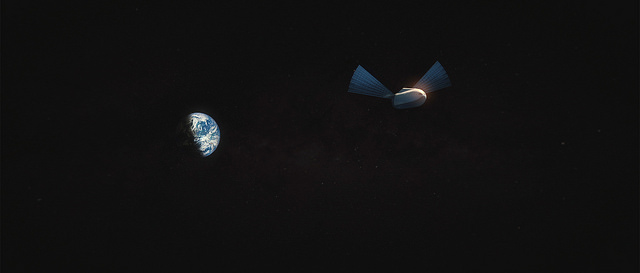SpaceX
Yes, we deserve to colonize Mars and keep our “light of consciousness”
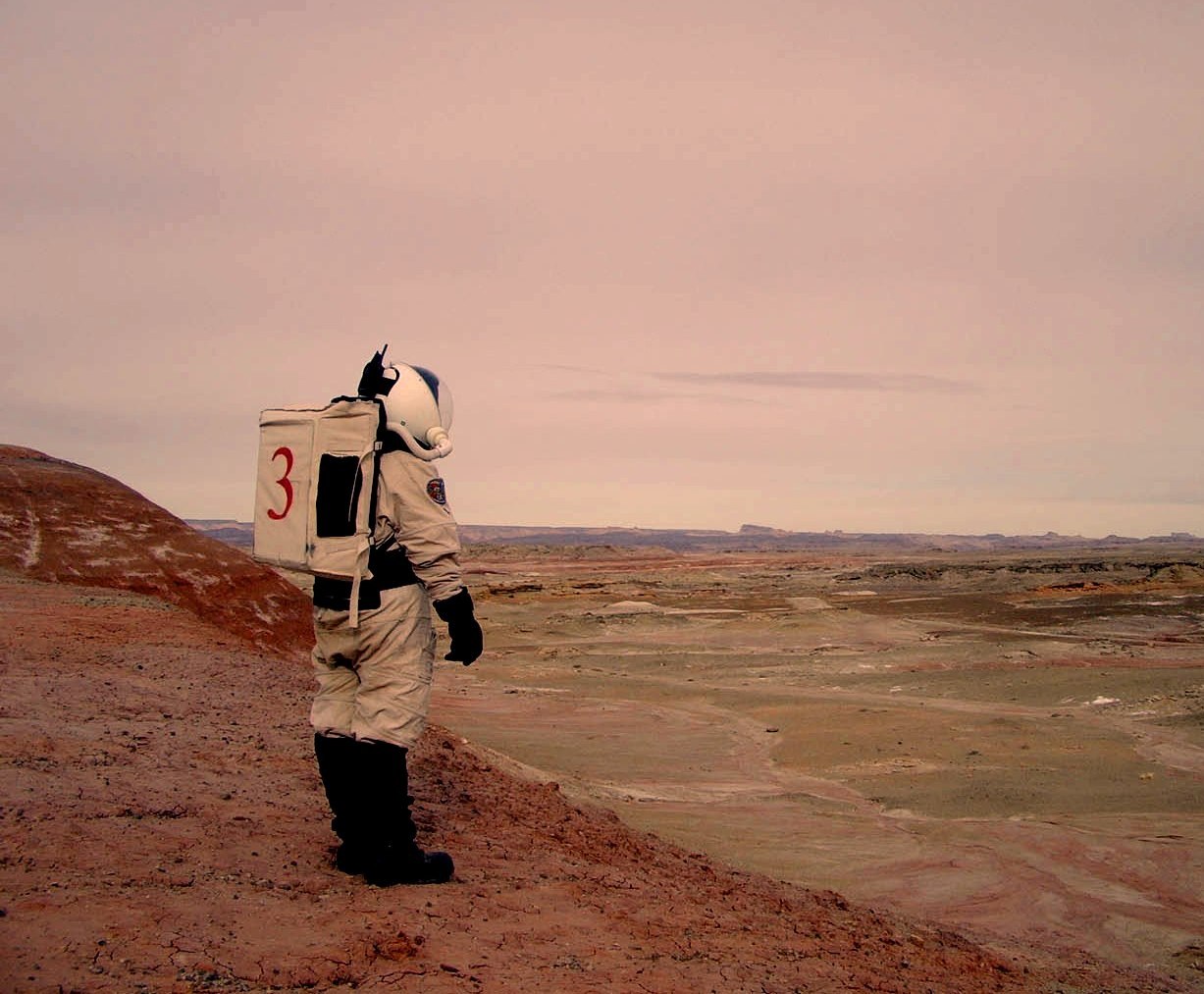
Elon Musk has spoken previously about having a duty to maintain the “light of consciousness” of humanity as the main rationale for multi-planetary habitation, or why we should colonize Mars specifically. It’s a pretty simple concept, really. Eventually the Earth will no longer be able to host human life as we know it, suffering from some sort of malady which will wipe out our species. Pick your poison: Asteroid attack, the Sun’s Earth-engulfing expansion, or even climate change. Something will bring us down, someday, unless we are proactive in our approach to survival.
Unfortunately, facts are fun things that don’t always help with solving problems (and annoyingly so), but it seems there’s also a crowd that doesn’t disagree with the facts and instead questions whether we even “deserve” to respond to them altogether.
In her recent TechCrunch article titled “The Ethics of Colonizing Mars”, Shivika Sinha cited Elon Musk, NASA, and the progress being made towards Mars and then asked the question, “Do humans deserve to be multi-planetary?”
 Her argument framed capitalism and consumerism as co-conspirators of our modern societal woes, and her conclusion was that we need to change our “parasitic” ways before exporting them to other planets in the universe. The whole argument was really just the human-shaming version of “fix Earth first”, a common objection to deep space colonization.
Her argument framed capitalism and consumerism as co-conspirators of our modern societal woes, and her conclusion was that we need to change our “parasitic” ways before exporting them to other planets in the universe. The whole argument was really just the human-shaming version of “fix Earth first”, a common objection to deep space colonization.
As a perfect, imperfect example of one of billions of humans on this planet, I will quite willingly admit that we are not a perfect species; however, I don’t understand why there’s so much guilt felt for merely existing in certain sects of society. It’s your choice whether to like who you are, but remember that you cannot live without living. You cannot stop pursuing the long-term survival of the species simply because you do not approve of its current state. Why aspire to be more if we are telling ourselves we are not even good enough to be such?
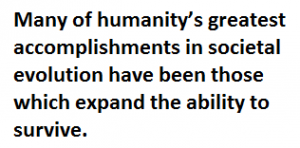 Behavior takes time to adjust. We do not live in a controlled, variable-limited scientific model society wherein our survival mechanisms are neatly categorized into “good” vs. “bad” choices. And more still, since when did survival become a question of worth? Many of humanity’s greatest accomplishments in societal evolution have been those which expand the ability to survive. Indeed, a huge part of compassion in our value system is the belief that everyone has the right to a life that is so much more than simply surviving. Given the consequences of not eventually going to colonize another planet, how does the logic compute that our species is suddenly not worthy of existence whatsoever?
Behavior takes time to adjust. We do not live in a controlled, variable-limited scientific model society wherein our survival mechanisms are neatly categorized into “good” vs. “bad” choices. And more still, since when did survival become a question of worth? Many of humanity’s greatest accomplishments in societal evolution have been those which expand the ability to survive. Indeed, a huge part of compassion in our value system is the belief that everyone has the right to a life that is so much more than simply surviving. Given the consequences of not eventually going to colonize another planet, how does the logic compute that our species is suddenly not worthy of existence whatsoever?
Sinha points to the flaws in our system which are in contradiction with the natural world, destroying it specifically, yet she doesn’t credit the source of the flaws to begin with: That same natural world. We were born in it, raised in it, and learned to survive based on those experiences. Somewhere along the line, we developed consciousness as a result of that process of surviving. We didn’t suddenly arrive on a beautifully balanced Earth ecosystem and begin sucking resources to feed our ravenous appetites. We fought hard to get here, and as an evolved species of this planet, we have the right to fight to continue to survive – just as every other living creature on Earth has done.
But that’s not the line of discussion I wanted to flesh out here.
Instead, I’d like to suggest that multi-planetary habitation is actually quite compatible with Sinha’s (and others like her) perspective because colonization is more than just a survival plan: It’s a tool for evolving our consciousness towards a value system which includes “conscious consumerism” by default.
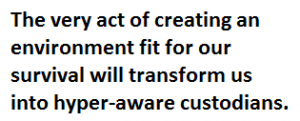 We evolved with the resources available in our Earth environment, and we’ve often taken them for granted because they were always there and available to us. When we take our species to colonize Mars, we will be doing just the opposite by transforming its environment to provide resources we need to survive. The very act of creating an environment fit for our survival will transform us into hyper-aware custodians. Every resource will be valued right down to the tiniest amounts measurable because even the most minute amounts will be important. Every action we take will have reactions that we must carefully calculate if we hope to survive.
We evolved with the resources available in our Earth environment, and we’ve often taken them for granted because they were always there and available to us. When we take our species to colonize Mars, we will be doing just the opposite by transforming its environment to provide resources we need to survive. The very act of creating an environment fit for our survival will transform us into hyper-aware custodians. Every resource will be valued right down to the tiniest amounts measurable because even the most minute amounts will be important. Every action we take will have reactions that we must carefully calculate if we hope to survive.
Taking the human race into deep space is so much more than “exporting” our consumerism once we’ve outgrown its birth place. It’s evolving who we are, increasing our awareness, and forcing us to understand the environments we will depend on and cannot risk taking for granted. We will be conscious of every choice we make as a matter of survival, and those lessons we learn in the early days of exploration will set the stage for the next phase of human colonization.
In the end, I think we’re all on the same page as far as long-term “colonize Mars” goals. The difference is simply in perspective. Taking our species to places like Mars isn’t an act based on some sort of contrived selfishness. It’s answering something we’ve had calling to us since the beginning of time: The stars. We came from them, and it’s to be expected that eventually we will want to return. Mars is the next step.
Onwards.

Elon Musk
SpaceX targets 150Mbps per user for upgraded Starlink Direct-to-Cell
If achieved, the 150Mbps goal would represent a significant jump from the current performance of Starlink Direct-to-Cell.

SpaceX is targeting peak download speeds of 150Mbps per user for its next-generation Direct-to-Cell Starlink service. The update was shared by SpaceX Spectrum & Regulatory Affairs Lead Udrivolf Pica during the International Telecommunication Union’s Space Connect conference.
“We are aiming at peak speeds of 150Mbps per user,” Pica said during the conference. “So something incredible if you think about the link budgets from space to the mobile phone.”
If achieved, the 150Mbps goal would represent a significant jump from the current performance of Starlink Direct-to-Cell.
Today, SpaceX’s cellular Starlink service, offered in partnership with T-Mobile under the T-Satellite brand, provides speeds of roughly 4Mbps per user. The service is designed primarily for texts, low-resolution video calls, and select apps in locations that traditionally have no cellular service.
By comparison, Ookla data shows median 5G download speeds of approximately 309Mbps for T-Mobile and 172Mbps for AT&T in the United States, as noted in a PCMag report. While 150Mbps would still trail the fastest terrestrial 5G networks, it would place satellite-to-phone broadband much closer to conventional carrier performance, even in remote areas.
Pica indicated that the upgraded system would support “video, voice, and data services, clearly,” moving beyond emergency connectivity and basic messaging use cases.
To reach that target, SpaceX plans to upgrade its existing Starlink Direct-to-Cell satellites and add significant new capacity. The company recently acquired access to radio spectrum from EchoStar, which Pica described as key to expanding throughput.
“More spectrum means a bigger pipeline, and this means that we can expand what we can do with partners. We can expand the quality of service. And again, we can do cellular broadband basically, cellular broadband use cases, like AI or daily connectivity needs,” he stated.
SpaceX has also requested regulatory approval to deploy 15,000 additional Direct-to-Cell satellites, beyond the roughly 650 currently supporting the system. The upgraded architecture is expected to begin rolling out in late 2027.
Elon Musk
Microsoft partners with Starlink to expand rural internet access worldwide
The update was shared ahead of Mobile World Congress.
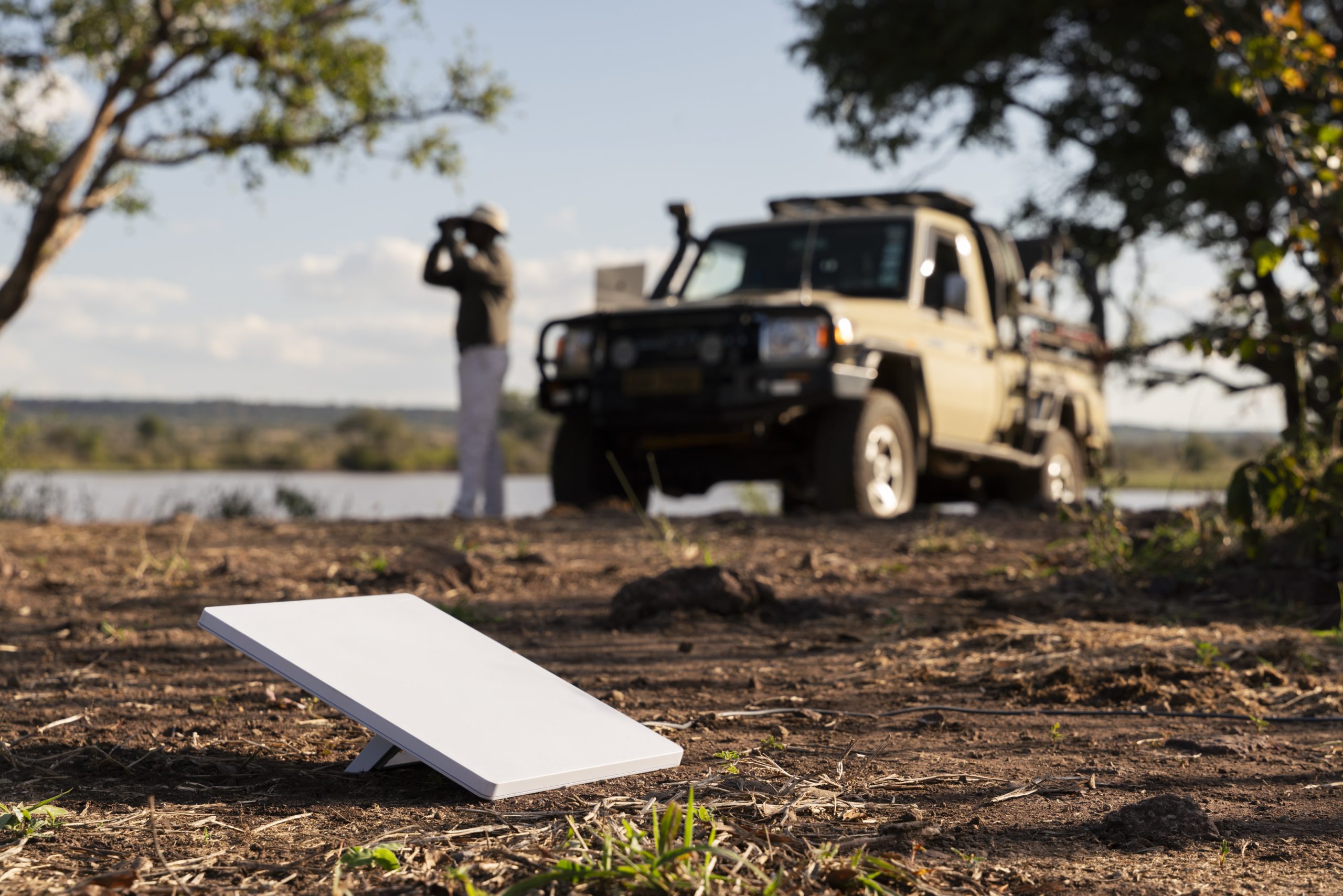
Microsoft has announced a new collaboration with Starlink as part of its expanding digital access strategy, following the company’s claim that it has extended internet connectivity coverage to more than 299 million people worldwide.
The update was shared ahead of Mobile World Congress, where Microsoft detailed how it surpassed its original goal of bringing internet access to 250 million people by the end of 2025.
In a blog post, Microsoft confirmed that it is now working with Starlink to expand connectivity in rural and hard-to-reach regions.
“Through our collaboration with Starlink, Microsoft is combining low-Earth orbit satellite connectivity with community-based deployment models and local ecosystem partnerships,” the company wrote.
The partnership is designed to complement Microsoft’s existing work with local internet providers and infrastructure companies across Africa, Latin America, and India, among other areas. Microsoft noted that traditional infrastructure alone cannot meet demand in some regions, making low-Earth orbit satellite connectivity an important addition.
Kenya was cited as an early example. Working with Starlink and local provider Mawingu Networks, Microsoft is supporting connectivity for 450 community hubs in rural and underserved areas. These hubs include farmer cooperatives, aggregation centers, and digital access facilities intended to support agricultural productivity and AI-enabled services.
Microsoft stated that 2.2 billion people globally remain offline, and that connectivity gaps risk widening as AI adoption accelerates.
Starlink’s expanding constellation, now numbering more than 9,700 satellites in orbit, provides near-global coverage, making it one of the few systems capable of delivering broadband to remote regions without relying on terrestrial infrastructure.
Starlink is expected to grow even more in the coming years as well, especially as SpaceX transitions its fleet to Starship, which is capable of carrying significantly larger payloads compared to its current workhorse, the Falcon 9.
Elon Musk
Elon Musk denies Starlink’s price cuts are due to Amazon Kuiper
“This has nothing to do with Kuiper, we’re just trying to make Starlink more affordable to a broader audience,” Musk wrote in a post on X.

Elon Musk has pushed back on claims that Starlink’s recent price reductions are tied to Amazon’s Kuiper project.
In a post on X, Musk responded directly to a report suggesting that Starlink was cutting prices and offering free hardware to partners ahead of a planned IPO and increased competition from Kuiper.
“This has nothing to do with Kuiper, we’re just trying to make Starlink more affordable to a broader audience,” Musk wrote in a post on X. “The lower the cost, the more Starlink can be used by people who don’t have much money, especially in the developing world.”
The speculation originated from a post summarizing a report from The Information, which ran with the headline “SpaceX’s Starlink Makes Land Grab as Amazon Threat Looms.” The report stated that SpaceX is aggressively cutting prices and giving free hardware to distribution partners, which was interpreted as a reaction to Amazon’s Kuiper’s upcoming rollout and possible IPO.
In a way, Musk’s comments could be quite accurate considering Starlink’s current scale. The constellation currently has more than 9,700 satellites in operation today, making it by far the largest satellite broadband network in operation. It has also managed to grow its user base to 10 million active customers across more than 150 countries worldwide.
Amazon’s Kuiper, by comparison, has launched approximately 211 satellites to date, as per data from SatelliteMap.Space, some of which were launched by SpaceX’s Falcon 9 rocket. Starlink surpassed that number in early January 2020, during the early buildout of its first-generation network.
Lower pricing also aligns with Starlink’s broader expansion strategy. SpaceX continues to deploy satellites at a rapid pace using Falcon 9, and future launches aboard Starship are expected to significantly accelerate the constellation’s growth. A larger network improves capacity and global coverage, which can support a broader customer base.
In that context, price reductions can be viewed as a way to match expanding supply with growing demand. Musk’s companies have historically used aggressive pricing strategies to drive adoption at scale, particularly when vertical integration allows costs to decline over time.
